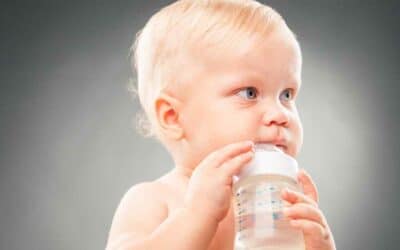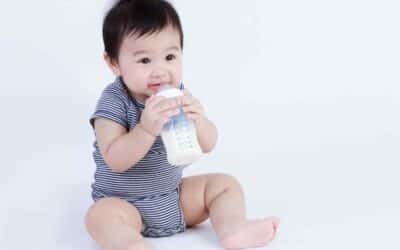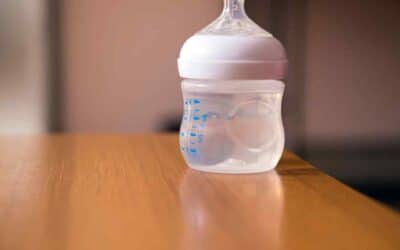Every parent wants the absolute best for their child, especially regarding their health and well-being. One of the aspects of baby care that often raises questions is the type of water to use for a baby’s bath. Considering potential contaminants, skin sensitivity, and overall cleanliness, some parents wonder if purified water could be a safer or more beneficial option than regular tap water for bathing their little ones.
This article sheds light on what purified water is, its potential benefits and drawbacks for a baby’s bath, expert opinions on this matter, and viable alternatives that might be worth considering. We aim to provide parents and caregivers with comprehensive information to help them make informed decisions about this aspect of baby care. Whether you’re a new parent, an experienced one, or someone in the baby care industry, this article has something useful for you. Let’s dive in!
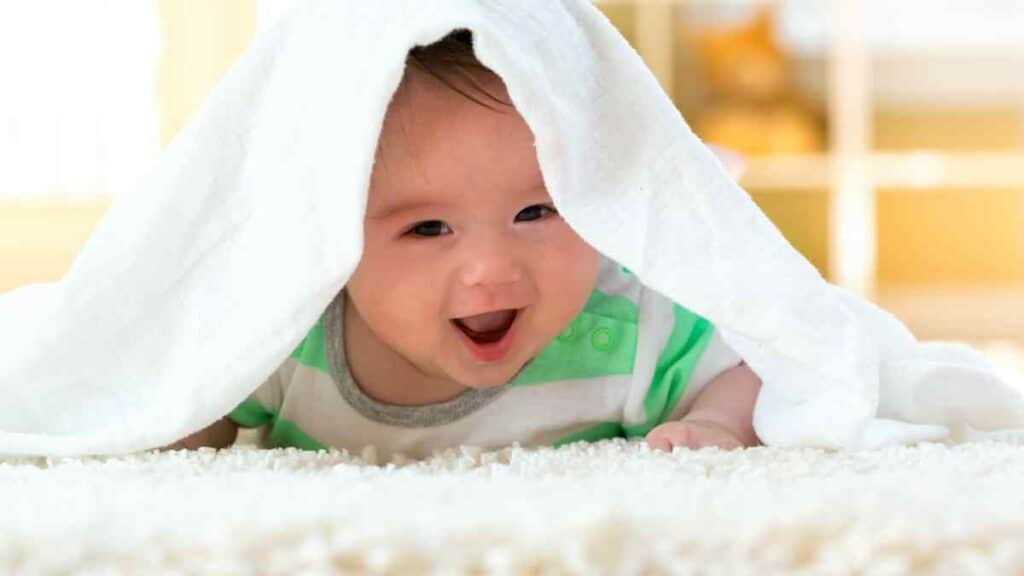
What is Purified Water?
Purified water is water that has been processed to remove contaminants like chemicals and other substances [1]. It’s treated more intensely than typical tap water, making it more suitable for certain uses.
Purified vs. Distilled Water: What’s the Difference?
While both purified and distilled water have undergone intensive processes to remove impurities, they differ in the treatment methods used. Distilled water is boiled, and the steam is collected and cooled to produce water, thus removing most contaminants. This process, however, also removes substantial natural fluoride and minerals.
Distilled or Purified Water: Which is Better for Your Baby?
When preparing baby formula, the Centers for Disease Control and Prevention (CDC) suggests using tap water from a safe local water utility. However, if you’re unsure of your local water quality or if your baby has a weakened immune system, you might consider purified or distilled water to reduce the risk of mineral contamination or disease from animal waste. Be aware that using distilled water for babies’ formula might require supplementing the baby’s diet with fluoride, as too much or too little fluoride can be harmful.
Baby Bathing: Can You Use Purified or Distilled Water?
For bathing your baby, warm tap water is typically safe and effective. You might consider using purified or distilled water for a baby’s bath if your tap water went through a series of tests and found to contain harsh chemicals or contaminants. Purified water’s clean, soft quality can be gentle on the baby’s skin and scalp.
Why Do Babies Need Distilled Water?
While it’s not a universal requirement for babies to have distilled water, it can be safer in certain circumstances, such as a compromised water supply. For example, the World Health Organization recommends boiling water (reaching a rolling boil) to kill bacteria when preparing powdered formula.
Fluoride-Free Water and Your Baby
Fluoride can support healthy tooth development. However, getting the balance right is important as too much fluoride can lead to dental fluorosis. If you’re using purified, distilled, or fluoride-free water for your baby’s formula, consult your local health department or pediatrician to discuss whether a fluoride supplement is necessary.
Alternatives to Purified and Distilled Water for Baby Care
If you’re concerned about your tap water quality but find purified or distilled water impractical, there are alternatives. A water softener or filter can remove many contaminants from tap water. When choosing water for baby formula, bottled water labeled as de-ionized, purified, or distilled is generally safe. That holds true, provided that it doesn’t contain too much fluoride. For bathing your baby, consider using baby oil or a gentle, baby-friendly bathing product to protect and nourish your baby’s skin.
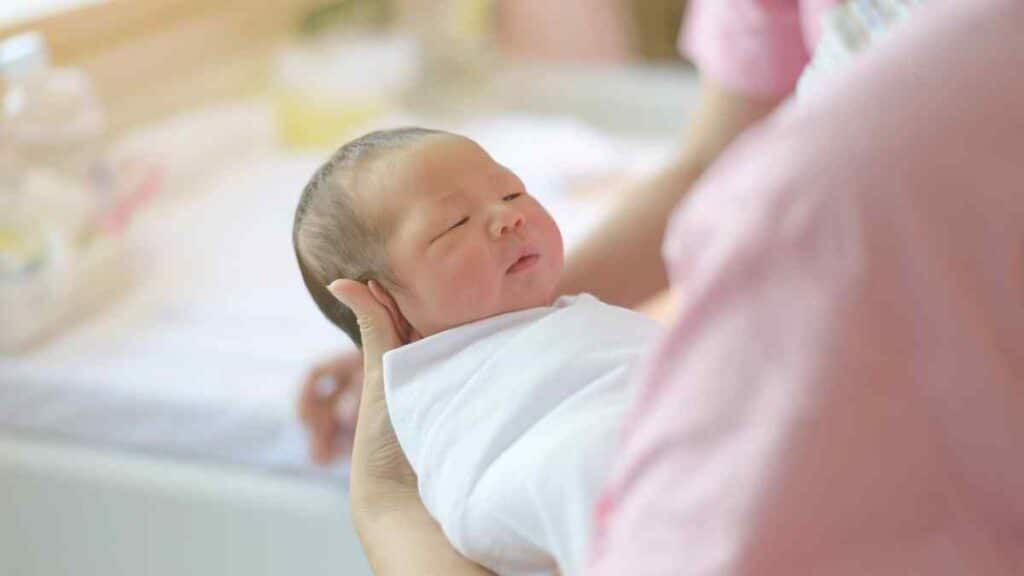
Concerns About Tap Water for Baby’s Bath
Tap water, while generally safe for adults, can sometimes pose concerns when used for bathing newborn babies. Depending on the water quality in your area, tap water may contain harsh chemicals or contaminants. Exposure to it could irritate your baby’s skin and scalp. Additionally, the warm or hot water typically used for a baby bath may affect the concentration of these substances.
Potential Hazards in Tap Water
The local water supply can sometimes have contaminants that includes heavy metals, bacteria, and other mineral contamination that might not be ideal for a baby’s sensitive skin or a weakened immune system. To ensure your baby’s safety, you may choose to get your water tested, especially if you’re living in an area with known water quality issues.
Purified Water: A Potential Solution for Bathing Concerns
Purified water, which has been processed to remove most contaminants, can be a safer alternative for your baby’s bath. This is particularly true if you have concerns about the quality of your tap water. Using purified water for bathing your baby can offer you peace of mind, knowing that your little one’s skin doesn’t get exposed to potentially harmful substances.
Purified vs Distilled Water: Which is Safer for Baby Formula?
When it comes to baby formula, purified and distilled water are both generally safe options, provided they you use it correctly. While distilled water undergoes a process that removes nearly all minerals, purified water retains some minerals. However, both types of water have a significantly lower risk of containing harmful contaminants compared to unfiltered tap water.
Using Purified Water for Baby’s Formula
Parents and caregivers can use purified water for preparing your baby’s bottle of formula. It’s crucial to ensure the water is at a safe temperature, typically cooled boiled water, before mixing it with the formula powder.
Fluoride Considerations in Baby’s Drinking Water
Tap water often includes Fluoride to promote dental health. While a certain amount of fluoride is beneficial, too much can lead to fluorosis. If you choose to use purified, distilled, or fluoride-free water for preparing baby formula, you may need to discuss fluoride supplementation with your healthcare provider.
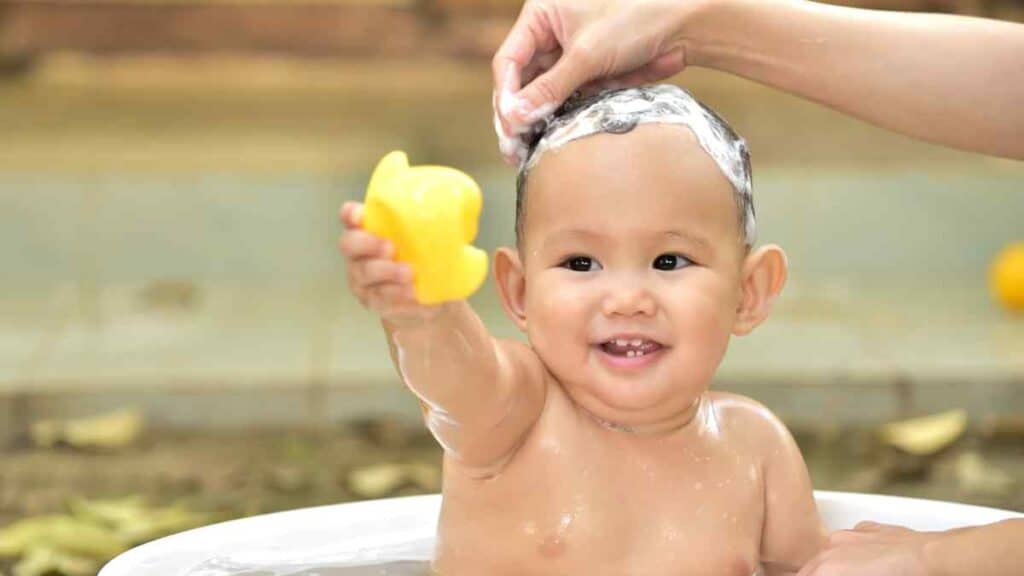
The Benefits of Using Purified Water for Baby’s Bath
As parents, our utmost concern is always the well-being of our babies. One of the decisions we make for them is what water to use for their baths. With growing concerns about tap water’s purity, using purified water for a baby’s bath has gained attention. In this article, we’ll explore the benefits of purified water for your baby’s bath.
Reduced Exposure to Contaminants
The first benefit of using purified water is the significantly reduction in exposure to potential contaminants. These can include heavy metals, chlorine, and bacteria present in regular tap water. Even if tap water is safe for drinking, babies’ skin can be more sensitive to these substances, potentially causing irritation or rashes.
Potential Benefits for Sensitive Skin
Bathing your baby with purified water can be particularly beneficial if your baby has sensitive skin. Purified water is gentler on the baby’s scalp and skin, reducing the risk of irritations and ensuring your baby feels comfortable and calm during their bath. Additionally, when you’re cleaning sensitive areas, like a fresh nappy change or an umbilical cord stump, using purified water can help avoid potential irritations.
Improvement in Water Quality for Bathing
Purified water has undergone processes to remove any contaminants, providing a high water quality for bathing. This ensures that your baby gets bathed in clean, safe water, which is especially important if your baby has a weakened immune system. Even when used to rinse clean clothes or cotton wool, purified water can offer a superior experience compared to regular tap water.
Purified vs. Distilled Water for Baby’s Bath
While both purified and distilled warm water are safe for baby’s baths, it’s essential to remember that they are not the same. Distilled water has undergone a process to remove all minerals and impurities, while purified water may still contain some beneficial minerals. Both options offer better water quality than unfiltered tap water.
Using Purified Water for Baby’s Formula
If you decide to use purified warm water for baby formula, consult your baby’s doctor, particularly about the fluoride content. Fluoride is crucial for dental health, but too much can cause faint white lines or streaks on your child’s teeth (fluorosis). Many parents opt for nursery water – bottled water marketed for babies – that is either fluoridated or fluoride-free, depending on their needs.
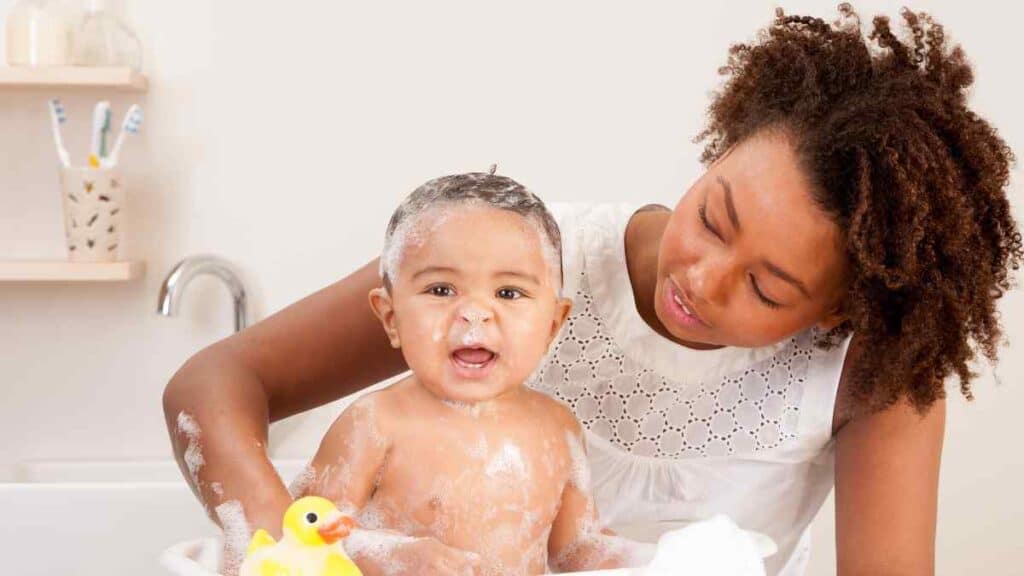
Conclusion
In conclusion, whether to use purified water for your baby’s bath depends largely on the quality of your local tap water and your baby’s specific needs. While purified water is free from many potential contaminants found in regular tap water, most experts agree that tap water is typically safe for a baby’s bath. However, if your baby has a weakened immune system or sensitive skin, or if your local water supply has contamination, purified water can be a viable alternative for bathing.
When it comes to preparing baby formula, you may also consider using purified or distilled water, particularly if you’re concerned about the potential for water-borne illnesses or contaminants. But remember to consult with a healthcare provider about the appropriate fluoride intake for your baby, as both purified and distilled water lack this beneficial mineral.
Parenting often involves making choices based on the best information available to us, combined with our instincts about what’s right for our child. In all cases, it’s important to discuss your options with a healthcare professional and make decisions based on what’s best for your baby’s health and wellbeing. After all, every child is unique, and what works best for one might not necessarily be the best choice for another.
If you found this article helpful, let us know by commenting below.

